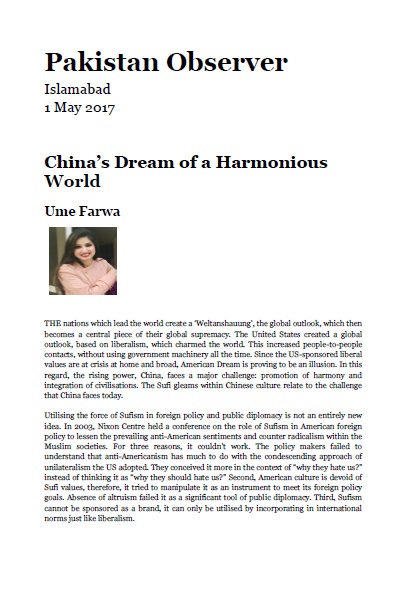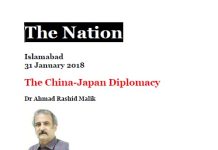THE nations which lead the world create a ‘Weltanshauung’, the global outlook, which then becomes a central piece of their global supremacy. The United States created a global outlook, based on liberalism, which charmed the world. This increased people-to-people contacts, without using government machinery all the time. Since the US-sponsored liberal values are at crisis at home and broad, American Dream is proving to be an illusion. In this regard, the rising power, China, faces a major challenge: promotion of harmony and integration of civilisations. The Sufi gleams within Chinese culture relate to the challenge that China faces today.
Utilising the force of Sufism in foreign policy and public diplomacy is not an entirely new idea. In 2003, Nixon Centre held a conference on the role of Sufism in American foreign policy to lessen the prevailing anti-American sentiments and counter radicalism within the Muslim societies. For three reasons, it couldn’t work. The policy makers failed to understand that anti-Americanism has much to do with the condescending approach of unilateralism the US adopted. They conceived it more in the context of “why they hate us?” instead of thinking it as “why they should hate us?” Second, American culture is devoid of Sufi values, therefore, it tried to manipulate it as an instrument to meet its foreign policy goals. Absence of altruism failed it as a significant tool of public diplomacy. Third, Sufism cannot be sponsored as a brand, it can only be utilised by incorporating in international norms just like liberalism.















